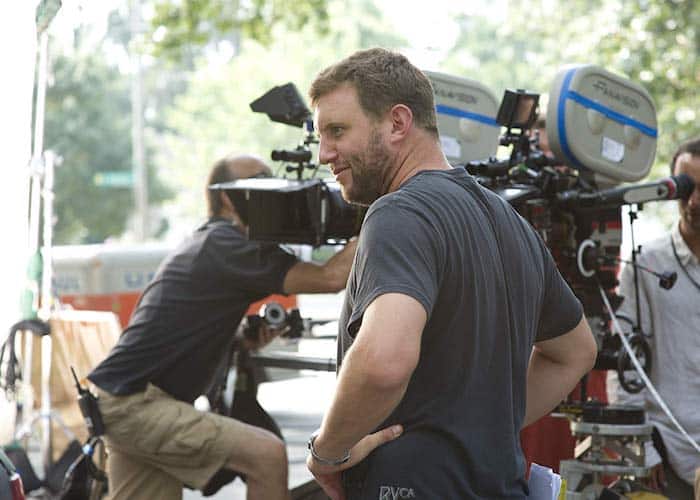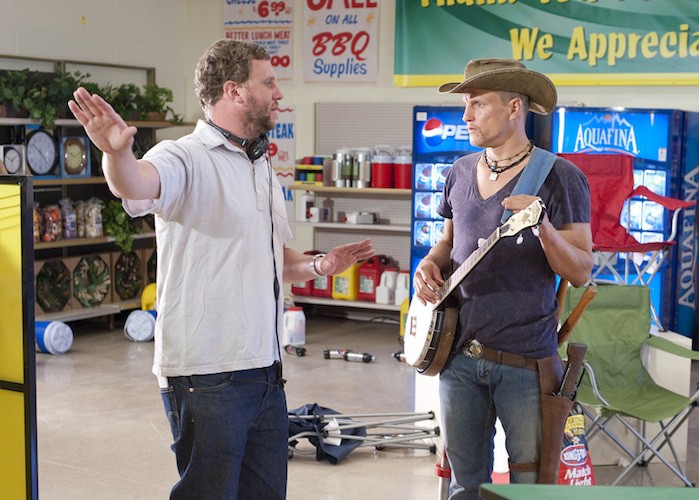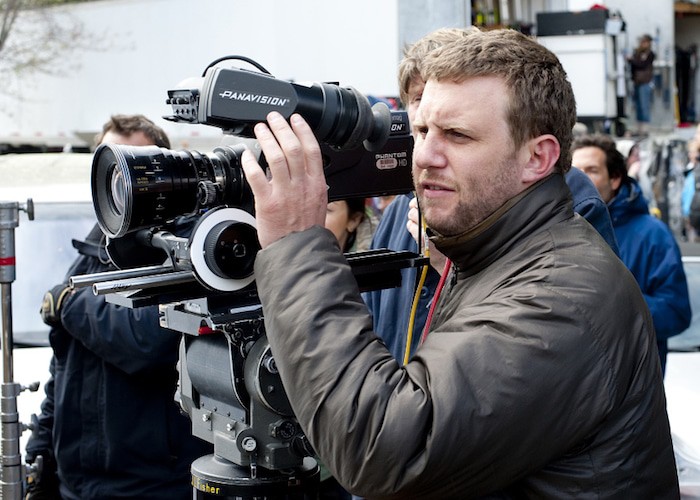After graduating from Wesleyan University with a degree in history—that is, managing to make his way through a school with one of the most prestigious film programs in the country without dabbling in moviemaking—Ruben Fleischer packed his bags and moved to San Francisco. To this day, he cannot explain why he made this decision, but he did. After running into difficulty finding employment, Fleischer took a friend’s advice, taught himself HTML, and headed towards the greener pastures of freelance programming back in the days when knowing HTML was enough to be considered a programmer.
Fleischer moved to Los Angeles after getting a job offer to do “Web stuff” for a start-up, only for the start-up to quickly fold, as start-ups are wont to do, leaving him in search of work once more. It was at this point that Fleischer got a PA job in the writers’ room of Dawson’s Creek and caught the moviemaking bug, quickly turning his sights towards directing and working his way up the ladder through music videos, TV commercials, and web series before breaking onto the scene in a major way with his debut feature Zombieland, America’s answer to Shaun of the Dead and indisputable best use of Bill Murray in a cameo role.
Since then, Fleischer has returned to dark comedy in 30 Minutes or Less, traveled back in time to 1949 with Sean Penn and Emma Stone in Gangster Squad, dipped his feet in television as an executive producer of Superstore and Santa Clarita Diet (also directing four and two episodes of the series, respectively), and is just about to debut his biggest budget project to date, Marvel’s Venom, before (tentatively) returning to Zombieland next year in Zombieland Too. Here are six lessons he’s learned along the way:
Go Shoot Stuff
In an interview published on pop culture website Icon vs. Icon back in March 2010, Fleischer was asked the age-old “what advice would you give aspiring filmmakers?” question, and he had the following to say:
“Go shoot stuff! Technology is so affordable at this point that you can have a really great camera with relatively good sound for not that much money. You can do editing and pretty sophisticated visual effects on your computer these days, so there are pretty much no limitations for people to make their own stuff, which is how I started. […] There are no excuses not to be making stuff. That is how you learn, by teaching yourself how to do it and hopefully, it is how you get discovered as well.”
[Note: it is worth mentioning that Fleischer has widely acknowledged that he worked himself into deep credit card debt funding his own projects. Admittedly, things seem to have worked out well for Fleischer, but still… maybe proceed with caution.]

Ruben Fleischer on the set of ’30 Minutes or Less’
Encourage Improv
When asked in a 2011 interview with BoxOffice magazine if he encouraged improv on the set of sophomore feature 30 Minutes or Less, Fleischer had the following to say:
[I encourage it] a hundred percent. Especially when you have people like Danny McBride or Nick Swardson or Jesse Eisenberg or Aziz Ansari, Michael Pena. They’re all just so good at it. We have a great script and I always try and get something resembling the script to begin with, but when you have people at that level of talent it would be, to me, just a waste not to access it. Some of the funniest things we’ve shot already have been things they came up with in the moment. I feel like as long as it’s not completely self-indulgent and that you exercise restraint in the editing room and don’t put in a ton of improvs just for the sake of it, what it allows you is more than just doing the scene the same way every time and then you just have a lot of versions of that scene. When they’re constantly coming up with stuff, you have so many more options. When you play it for an audience, if that joke doesn’t work you have three more to go to, as opposed to just the scripted joke.

Ruben Fleischer directs Woody Harrelson in ‘Zombieland.’
Embrace Everyone’s Contributions
Fleischer directs and produces, but after trying his hand at it a couple times, he’s decided he’s happy leaving the writing to others. However, as he explains in this DP/30 video interview, he thinks this distance from the screenplay helps him fully embrace a more collaborative attitude as a director:
I’m interpreting [the screenplay] the same way like any other person on the set is, whether it’s the production designer, when he reads it he has his vision for it, as an actor, you know, that person reads it, they have their vision for it. For me, same thing. And so we’re all working together to invent something together, and every element changes. […] take out any piece of the puzzle and it would be different. If it had been the cinematographer from any of my other movies shooting ‘Zombieland,’ it would have been a different movie. They’re just so organic and constantly changing that it’s hard to be so controlling of it. I think it’s impossible. […] I embrace everyone’s contributions.”
You can watch the rest here (the quote above starts at 10:27):
Consider the Value of Creative Control
After grossing over $100 million against a budget a little over $20 million with Zombieland, Fleischer was hot stuff in Hollywood, and his name circulated through the rumor mill in conjunction with some big-ticket items, including the Mission: Impossible franchise. Ultimately Fleischer chose 30 Minutes or Less for his next project, working with an only slightly larger budget: $28 million.
Part of it had to do with not yet feeling quite prepared “to bear the pressures” of a $100 million dollar project—by the time he took on Venom he would have two more films and multiple TV projects under his belt—but some of it also had to with what he saw as the decided advantages of working with a smaller budget, as he told Collider in a May 2011 interview:
“We were pretty much left to our own devices to make [‘30 Minutes Or Less‘], and to me that’s the most important thing, having that creative control. On those bigger movies you have so much more politics and it’s not your movie as much. If you’re involved with a huge star or a huge franchise you’re just a pawn in that whole situation. I just wanted to have something where I felt like it’s mine and can my hands on it and craft it.”

Ruben Fleischer directing Sean Penn in ‘Gangster Squad’
You’re Better Off Without A Masterplan
When speaking with online publication The Schmooze back in 2013, interviewer Curt Schleier proposed that Fleischer “could be the poster child for not having a grand design in life,” and the man himself wholeheartedly agreed:
“I would argue for that. I think it’s a good thing. I didn’t decide I wanted to be a director until I was 26 and after I dabbled in different things. I think it’s important that people figure out what it is that they want to do.”

Ruben Fleischer on the set of ‘Zombieland’
Respect Auditioning Actors (Even if They’re Not the Right Fit)
Talking with Backstage magazine in the wake of Zombieland’s success in 2009, Fleischer discussed the empathy he felt for actors in the auditioning process and his attitude of letting everyone audition in full even if they aren’t the right fit. As he explained, it’s not just a matter of being considerate but a valuable way of learning about the wide range of acting talent out there:
“[Actors] show up [to auditions], they probably have to wait around for a good half an hour, they come in, and they get five minutes. You think about all the time that goes into it, and I could never be dismissive in any way. I gave everyone their best shot and really worked with actors because I felt I owed them something for being there. Because it sucks. […] I know what it is to put everything into [an audition], so the least I could do when people came in, even if they weren’t right, was give them the respect of letting them show what they can do. And it’s educational because I can remember them in the future. I was up for this pilot, and two of the leads were guys who auditioned for “Zombieland,” and I was excited to see them. So even if it didn’t work for “Zombieland,” I’m now so much more aware of the massive amount of young talent of actors I otherwise wouldn’t have known.”
What We Learned
As Fleischer has mentioned in interviews, road trip movies need to have destinations—but your master life plan does not (if you want to get morbid, all life already has a predetermined destination anyway, but I digress). Sometimes doing something kinda crazy on a whim, like impulse-moving to the other side of the country, might actually end up leading you to places you want to go. Sometimes risky gambles pay off (note: going into serious credit card debt is still not a recommended course of action). But long story short, if you don’t have your entire life figured out yet, don’t panic. Keep exploring. Sometimes you get lucky enough to stumble onto the path you didn’t even know you were looking for.
The post 6 Filmmaking Tips From Ruben Fleischer appeared first on Film School Rejects.
No comments:
Post a Comment